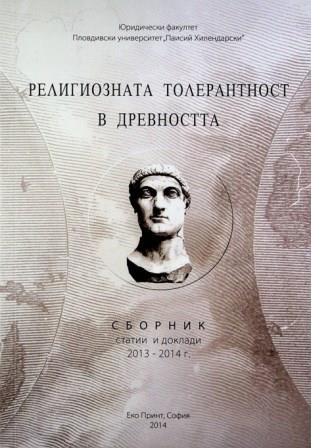Свободата на вероизповеданията в исторически план
Freedom of Religion Throughout Historical Development
Author(s): Vanessa Ponte Arrebola
Subject(s): Law, Constitution, Jurisprudence, History of Law, Canon Law / Church Law, Roman law
Published by: Пловдивски университет »Паисий Хилендарски«
Keywords: religion; freedom; historical development
Summary/Abstract: The article analyzes the term and notion of religious tolerance. Certain philosophical concepts on freedom of religion and its practice in the contemporary world are introduced. The present study analysis the manifestations of religious tolerance in relation to the concepts for freedom of personality in Ancient Greece and Ancient Rome in the context of political, cultural and religious community in the Antiquity. The article further analyzes the connection between Rome and Christianity and the turning point of the policy of persecutions developing into a policy of tolerance of Christian religion and more so its adoption as a state religion and the prohibition of pagan cults. The second part of the article examines the dualism of Christianity. It exists in summarized version and it is expressed by the idea of caesaropapism and the supremacy of religious power over secular power and vice versa. The two systems are based on the concepts of political and cultural (Christian) community and are inextricably bound. They originate from the elevation of Christianity to official religion in the Roman Empire and its supremacy during the following centuries within the European continent. The effects of religious tolerance in the liberal and social nation are observed through the prism of contemporary concepts about the equality of religious practices and freedom of religion.
Book: Религиозната толерантност в древността : Сборник статии и доклади 2013-2014
- Page Range: 118-132
- Page Count: 15
- Publication Year: 2014
- Language: Bulgarian
- Content File-PDF

